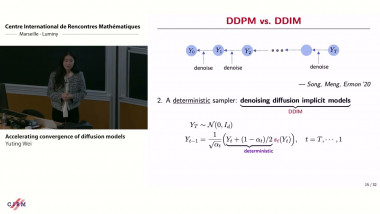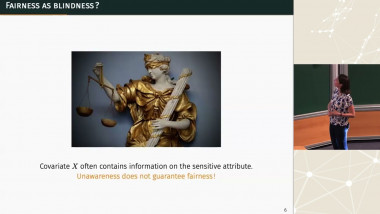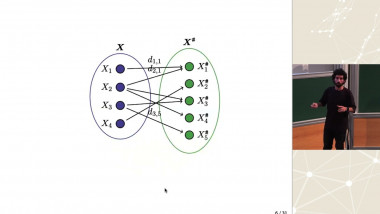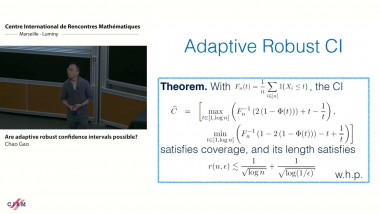Asymptotic behavior of the Laplacian quasi-maximum likelihood estimator of affine causal processes
Apparaît dans la collection : Thematic month on statistics - Week 3: Processus / Mois thématique sur les statistiques - Semaine 3 : Processus
We prove the consistency and asymptotic normality of the Laplacian Quasi-Maximum Likelihood Estimator (QMLE) for a general class of causal time series including ARMA, AR($\infty$), GARCH, ARCH($\infty$), ARMA-GARCH, APARCH, ARMA-APARCH,..., processes. We notably exhibit the advantages (moment order and robustness) of this estimator compared to the classical Gaussian QMLE. Numerical simulations confirms the accuracy of this estimator.















